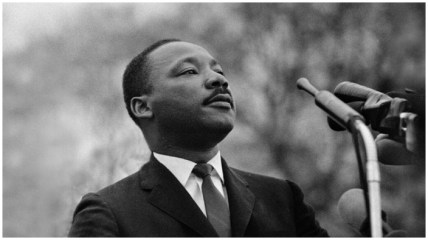Affirmative action has changed many Black lives
OPINION: In "Being Black: The '80s," we talk about how affirmative action changed Tracy Chapman's life.

Editor’s note: The following article is an op-ed, and the views expressed are the author’s own. Read more opinions on theGrio.
One of the reasons why it hurts me to my core to see affirmative action be gutted by a conservative Supreme Court is that we live in a nation filled with examples of affirmative action making a real difference in people’s lives. I talk about how affirmative action changed Tracy Chapman’s life in an episode of my podcast, “Being Black: The ‘80s” called “Tracy Chapman x Affirmative Action.”
Chapman grew up in a working-class single-parent home in Cleveland. She and her mother knew nothing about the world of New England private schools until someone told them. Chapman got a scholarship to Wooster School in Connecticut and went on to Tufts University where she met a man whose father was in the music industry. That led to a record deal. Affirmative action changed the course of her life. It gave her a chance in life. Without it, it’s likely that we would have never heard of Chapman. Her talent might have been wasted. Affirmative action has been key to opening doors for many Black Americans for years, but I also think about the millions of Black Americans who never had access to affirmative action and how that changed their lives.
In the episode, I also talk about another legendary Black female singer — Elizabeth Cotten. She was born in 1912 and grew up in North Carolina. As a child, she mastered the guitar and wrote some songs that would become iconic decades later but by her teenage years, she had quit music and school as well so she could work to help her family get by. She spent decades working as a maid and a nanny. Then one day, when she was in her 60s and working in a department store, she found a little girl in tears wandering the store alone. The kid had gotten separated from her mom. Cotten calmed her down and then held her hand and helped her find her mom. The mother was so impressed, she offered Cotten a job as a maid and nanny.
Cotten took the job and settled into working in a home where there were lots of musical instruments around. When she had a little free time, she picked up a guitar and went into a private room. But soon the kids she was taking care of heard her and told their mom the maid was really good at the guitar. Cotten had stumbled into the home of the legendary Seeger family — the little kids she was taking care of were Pete Seeger and Peggy Seeger who would grow up to become legendary musicians. The Seegers helped Cotten get back to playing and then got her into a recording studio. Cotten ended up becoming a professional folk musician who toured and owned her own home and won a Grammy in 1984 for Best Ethnic or Traditional Recording for the album “Elizabeth Cotten Live!” Cotten performed a few months before her passing in 1987. In 1989, Tracy Chapman won a Grammy for Best New Artist.
I can’t help but think Chapman might have ended up like Cotten, squandering her talent for most of her life, if no one gave the poor Black kid a chance. I also wonder how many Elizabeth Cottens there are — people who were genius but never met their Seeger family and thus never got access and saw their talent waste away?
This is but one story of how affirmative action changed lives in the Black community. For more on all of this, check out “Tracy Chapman x Affirmative Action” on my podcast “Being Black: The ‘80s.”

Touré is a host and Creative Director at theGrio. He is the host of the docuseries podcast “Being Black: The ’80s.” He is also the host of the podcast “Toure Show” and the podcast docuseries “Who Was Prince?” He is the author of eight books including the Prince biography Nothing Compares 2 U and the ebook The Ivy League Counterfeiter.
TheGrio is FREE on your TV via Apple TV, Amazon Fire, Roku, and Android TV. Please download theGrio mobile apps today!
More About:Entertainment











